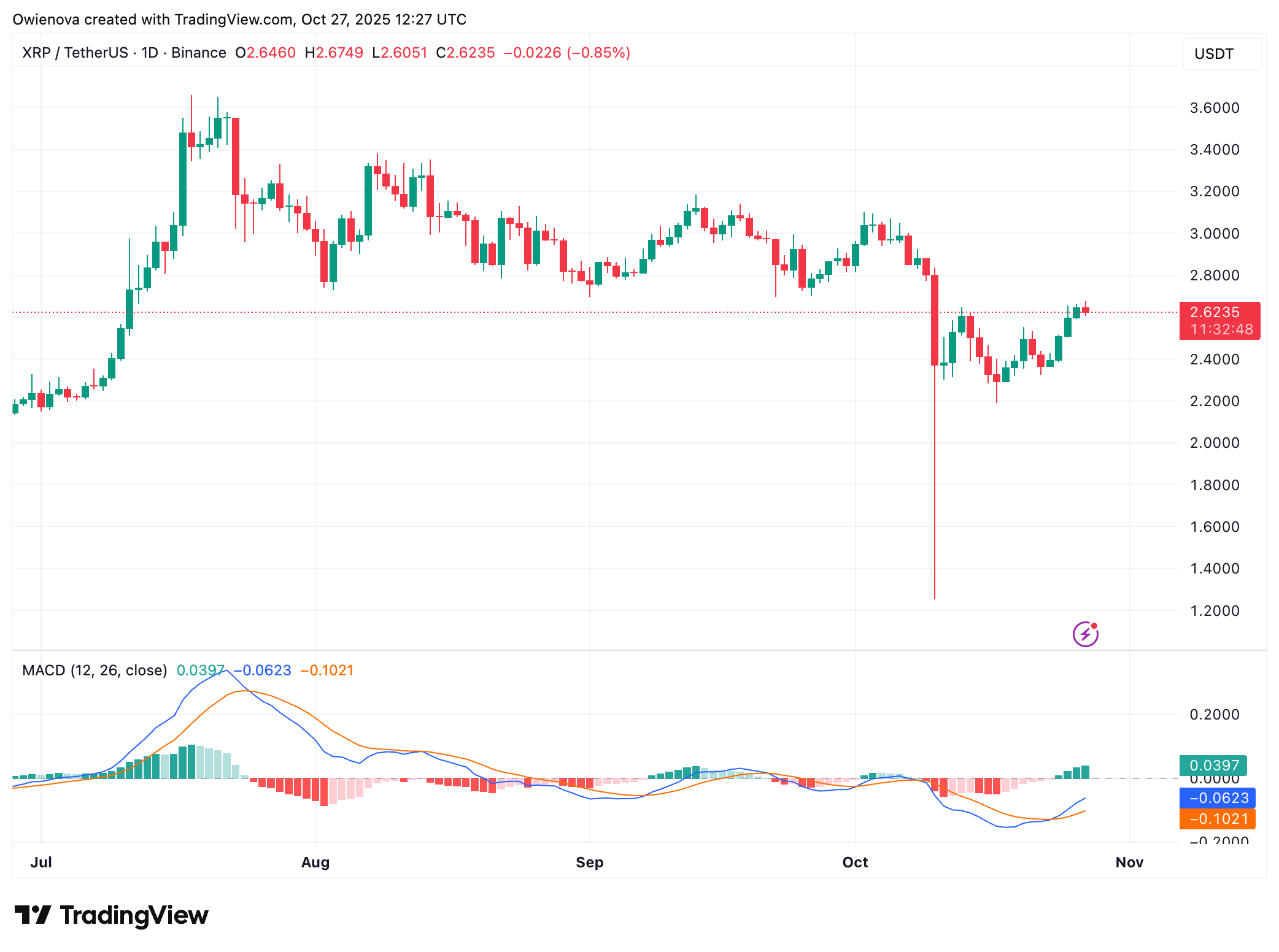Bitcoin News Update: Investors Shift $7.4 Trillion as Federal Reserve Lowers Rates to Boost Economic Expansion
- Fed plans 2025 rate cuts to boost growth amid slowing economy, with 3% inflation above 2% target. - Markets expect 150-200 basis points of easing by 2026, driving $7.4T liquidity into stocks, Bitcoin, and bonds. - Wall Street indices surged on rate-cut optimism, with tech giants and Ford shares rising despite profit warnings. - Bitcoin gains traction via $26B ETF inflows, while global markets adapt to lower rates through stablecoins and regulatory scrutiny.
Monetary policy direction from the U.S. Federal Reserve for 2025 is becoming more predictable, as both analysts and market signals anticipate two more interest rate reductions before the year concludes. Recent trends in inflation, corporate outlooks, and liquidity movements are strengthening the belief that the central bank will lower borrowing costs to support economic growth as momentum slows.

The Fed’s decision in September 2025 to reduce its benchmark rate by 25 basis points, bringing it to a 4.00%-4.25% range, marked a significant move and highlighted a reliance on economic data for future actions. This came after the Bureau of Labor Statistics reported a 12-month inflation rate of 3% in September, slightly higher than the 2.9% recorded the previous year, according to a
Market participants are anticipating between 150 and 200 basis points of rate reductions through 2026, with expectations for another cut in December 2025 already influencing asset valuations, based on a
Wall Street’s immediate response has been notable. On October 24, the Dow Jones Industrial Average, S&P 500, and Nasdaq Composite all surged at the open as investors responded to the Fed’s more accommodative stance. Stocks continued to climb on hopes for strong corporate earnings, with major tech firms such as Microsoft and Amazon set to announce results in this environment, according to an
Bitcoin is also poised to gain. Spot ETF inflows reached $26 billion in 2025, with BlackRock’s IBIT alone drawing $100 billion in assets, as noted in the Coinpaprika analysis. Some analysts believe that if 5% of money market fund assets move into crypto, Bitcoin could reach $280,000-$350,000, though most of the liquidity is expected to flow first into bonds and stocks.
The Fed’s shift in policy is influencing financial systems worldwide. In Japan, the introduction of JPYC, the nation’s first yen-based stablecoin, highlights how both central banks and private companies are adjusting to a lower-rate climate, as reported by
As the Fed prepares for its next steps, investors will pay close attention to the November meeting and the Trump-Xi summit for insights into trade relations and inflation trends. With further rate cuts widely expected, the spotlight turns to capital flows and the search for the next drivers of economic growth.
---
Disclaimer: The content of this article solely reflects the author's opinion and does not represent the platform in any capacity. This article is not intended to serve as a reference for making investment decisions.
You may also like
BlackRock Ethereum ETF purchases $72.5M in ETH

XRP Volatility Incoming? Ripple CEO Prepares Investors For What’s Next

Bitcoin News Update: Japan’s JPYC Stablecoin Poses a Challenge to Dollar Dominance While Bitcoin Whales Continue to Amass
- Bitcoin's illiquid supply dropped as 62,000 BTC ($7B) left long-term wallets, easing price pressure but leaving BTC below its $125,000 October peak. - Japan launched JPYC, a yen-pegged stablecoin backed by JGBs, challenging USD dominance in stablecoins and leveraging the yen's global usability for cross-border crypto settlements. - Regulatory clashes over prediction markets (e.g., Kalshi vs. New York) highlight tensions between innovation and jurisdiction, while JPYC's no-fee model and JGB backing positi

Crypto’s Digital Security Battle: GMGN Commits to Complete Compensation Following Phishing Incident
- GMGN.Ai founder Haze announced full reimbursement for 107 phishing victims after a fake token site breach, emphasizing strengthened security measures. - The attack exploited social engineering tactics, aligning with rising AI-driven phishing trends like Microsoft's CoPhish and LastPass credential scams. - GMGN's response followed a prior MEV sandwich attack affecting 729 transactions, showcasing proactive crisis management and automatic compensation protocols. - Industry experts highlight the need for mu
